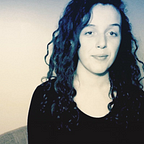Walt Whitman & Divine Consciousness
Many scholars have analyzed Walt Whitman’s poetry for its political and social commentary. However, to truly penetrate the depths of Whitman’s poetry one needs to dive into the exploration of the self. To experience Whitman’s poetry is to witness the self realizing itself as divine. Whitman’s poetry moves beyond traditional form in an attempt to penetrate the most subtle emotional space within the reader. He had experienced his own spiritual transformation which led him to write in such an elaborate, expanded style. It is through this style that his words need to be expressed — a more composed, restricted style would be an understatement of the experience he is trying to convey through his poetry.
In Whitman in the Light of Vedantic Mysticism, Chari states that the task of the poet is to bring cosmic chaos into unity, both within the individual and within the outer world. Chari comments on Hegel, Schelling, and Fichte’s interpretations of the self: “Fichte saw the ego as the ultimate reality, and the world as its creation. Schelling, too, referred all existence to self-consciousness. To Hegel the self is the absolute” (54). Here we can see that these philosophers all use their mental faculties when conceiving of the self. However, the fact that they are labeling the self in such a sentence shows that they do not even touch upon the essence the self. Chari goes on to further explain:
